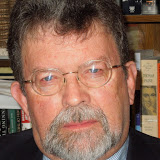Today is 9/11. After I read Kurt Eichenwald's New York Times Op-ed, "The Deafness Before the Storm" ( http://www.nytimes.com/2012/09/11/opinion/the-bush-white-house-was-deaf-to-9-11-warnings.html?ref=opinion ), all the memories came back. Also coming back were all the infuriating memories suggesting that the Bush administration's obsession with removing Saddam Hussein from power created a national security black hole into which sank all the bubbling intelligence about the increasing threat posed by al-Qaeda.
Mr. Eichenwald's Op-ed is an eye-opener. Although everyone capable of steaming up a mirror (when placed under his nose) knows about the August 6th daily brief titled, "bin Laden Determined to Strike in U.S.," Eichenwald demonstrates that President Bush received more daily briefings about the threat posed by al-Qaeda than previously imagined.
"The direct warnings to Mr. Bush about the possibility of a Qaeda attack began in the spring of 2001." Eichenwald implies that, on May 1st, the CIA told the White House about a report claiming that al-Qaeda was in the country and planning terrorist operations. On June 22, "the daily brief reported that Qaeda strikes could be imminent."
How do you explain Bush's decision to ignore numerous warnings about a threat posed by al-Qaeda? Willful indifference? But, what would have caused such indifference? Let's consider some of the evidence Eichenwald's article prompted me to remember.
First, as I've written elsewhere "in January 2001, CIA director George Tenet gave President-elect Bush, [Vice President-elect] Cheney and [incoming National Security Advisor Condoleezza] Rice his 'secrets brief' during which he informed them that the greatest threat facing America was the possibility of a terrorist attack by Osama bin Laden and al-Qaeda. The threat was 'tremendous.'"
Second, despite the information given about the tremendous threat posed by al-Qaeda, Mr. Tenet found himself briefing Bush's very first National Security Council meeting about Iraq, not al-Qaeda
.
Third, as I noted in my review of Richard A. Clarke's book, Against All Enemies, for the San Francisco Chronicle, "when allowed to brief Bush's deputies in April [2001], he [Clarke] recommended the United States 'put pressure on both the Taliban and al Qaeda by arming the Northern Alliance and other groups in Afghanistan' and targeting 'bin Laden and his leadership by reinitiating flights of the Predator.' Deputy Defense Secretary Paul Wolfowitz objected: 'Well, I just don't understand why we are beginning by talking about this one man bin Laden.' Wolfowitz wanted to pursue 'Iraqi terrorism.' To which Clarke replied: 'I'm unaware of any Iraqi-sponsored terrorism directed against the United States, Paul, since 1993.'"
Fourth, although regime change in Iraq was all-too-frequently the focus of Bush's National Security Council meetings in the months leading up to al-Qaeda's attacks, only once -- the week before the actual terrorist attacks -- was al-Qaeda the focus of such a meeting.
Fifth, the two pillars of the Bush administration's national security policy during the first eight months of 2001 were regime change in Iraq and the building of a national missile defense. The former was kept secret, the latter was publicly trumpeted. But, Neocon ideologues publicly trumpeted both.
One political ideologue, Curt Weldon, absurdly blended the two. He loved to alarm listeners about the dangers of Saddam Hussein's SCUD missiles in order to tout missile defense. But he proved to be a charlatan, rather than a prophet, when he asserted: because "the weapon of choice" for international terrorists "is the missile," America needs missile defense to fight terrorism.
Sixth, on the very day of al-Qaeda's attack, Condoleezza Rice was scheduled to give a major foreign policy speech on missile defense. It contained no references to al-Qaeda or bin Laden.
Seventh, on page 39 of Bob Woodward's book, Bush at War, President Bush admitted that he felt no "sense of urgency" about bin Laden prior to 9/11.
Given the new information provided by Mr. Eichenwald, why Bush felt no sense of urgency now becomes an even larger question. Had he felt a sense of urgency, he might have put the government on "high alert" for an impending attack by al-Qaeda, and thus lessened the probability of a successful attack.
Instead, as the evidence listed above suggests, Mr. Bush displayed a far greater, if private, sense of urgency to bring about regime change in Iraq. Private urgency about Iraq and public urgency about missile defense by neocon true believers best explain why frequent intelligence briefs about al-Qaeda bubbled up, only to sink into a black hole.
The next time a neoconservative, a Republican or a former member of the Bush administration asserts: "The Bush administration kept us safe," the proper response is: "No, it didn't. Not only did the most heinous terrorist attack in American history occur during its watch, we now have good reason to believe that it refused to do everything it could possibly do to render that terrorist attack less probable or less successful."





